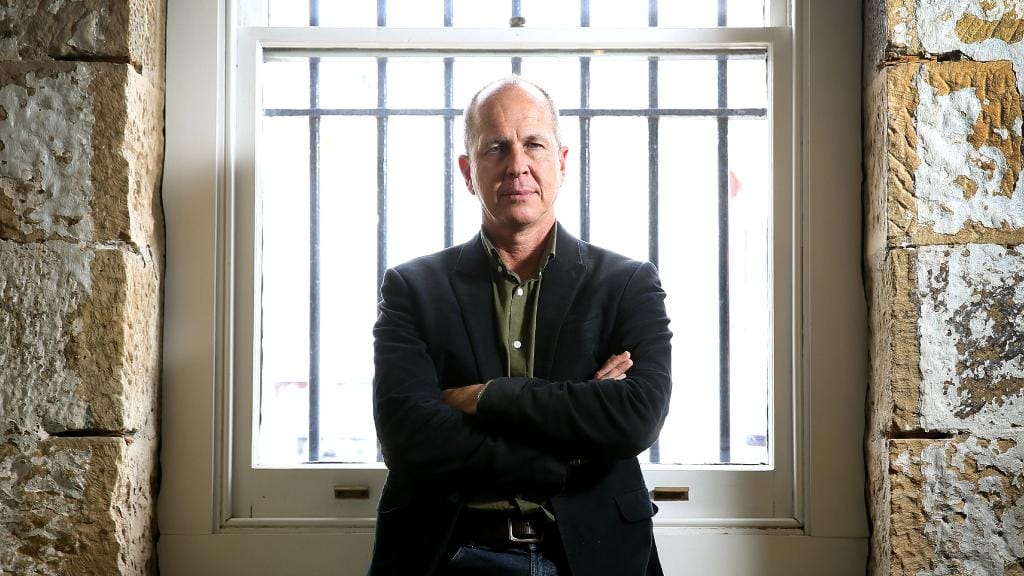A free press is not about special treatment for the media, but ensuring our governments are held to account, writes Professor Peter Greste. The ABC’s failed court bid is yet another blow — and we should all be worried.
On Monday, the Federal Court issued a judgment that I suspect will come to be seen as a pivotal moment – downwards – in the fight to maintain transparency and accountability of the Australian government and its agencies.
In its judgment, the court dismissed an application by the ABC, challenging the validity of a search warrant that the AFP used to raid the broadcaster last year. The police went into the ABC’s Ultimo headquarters in May, searching for evidence of the sources to a series of stories known as The Afghan Files, that alleged Australian Special Forces had been involved in the unlawful killing of civilians.
The warrant said the AFP was investigating whether an ABC journalist had “unlawfully obtained military information, contrary to section 73A (2) of the Defence Act 1903” and whether he “dishonestly received stolen property … contrary to section 132.1 of the Criminal Code Act 1995”.
On the face of it, it does appear that the ABC obtained military information – they published the contents of military documents on their website; and if you define that information as ‘property’, then you could conceivably argue that what they received was ‘stolen’.
At the same time, nobody has ever suggested that the ABC published anything that genuinely harmed national security or damaged the operations of our troops.
Nobody was compromised. No information was leaked that put people at risk.
Yet it is also undeniable that the story was genuinely ‘in the public interest’, even in the narrowest definition of the term. The behaviour of our military, acting in our nation’s name, is something we all need to be aware of.
By dismissing the ABC’s case, the Federal Court has also condoned the AFP’s power to march into newsrooms and even a journalist’s home to hunt for evidence of sources.
On the day before the ABC raid, AFP agents marched into the Canberra home of News Corp political reporter Annika Smethurst, over a 2018 story that was also politically embarrassing. In that case, Smethurst reported that the government was planning to expand the powers of its international electronic spying agency to also snoop on Australians. In that case too, News Corp (publisher of this paper) has gone to the High Court to challenge the legal basis behind the raid. The High Court is yet to hand down its ruling.
In its submission, the ABC argued that the search warrant ran counter to the right of political communication implied in our constitution. It tried to argue that the broader principle of press freedom trumped the police’s narrow interpretation of the law. But the fact that the right is merely ‘implied’, underscores how inherently weak that principle remains in our legal code. It also gave the judge very little room to move.
Unlike the United States, with its First Amendment protections for freedom of expression, we have no explicit guarantee of press freedom. In fact, we have the weakest protections of all our major security partners – the US, the UK, New Zealand and Canada all have constitutional guarantees in place. So, whenever that implied right comes up against a clearly defined law, the law will almost always win out, regardless of the impact it might have on the ability of journalists to investigate governments and protect their sources.
The Judgement makes criminals out of civil servants going to the media to expose wrongdoing, even if there is no cost to security.
It makes criminals out of those journalists receiving and publishing the information. And it makes our democracy inherently weaker.
To be clear, this is not to suggest that journalists should be treated as a special class of people.
It is also not to suggest that the media should have unfettered access to all government documents, or the inner workings of its agencies. There is always a compelling need for a degree of secrecy.
But this is about recognising the oversight role that the media plays on behalf of every Australian voter and taxpayer.
As The Afghan Files story shows, even our security agencies are capable of behaving inappropriately. The system is imperfect of course, and often messy and undignified, but it has worked pretty effectively at making our country one of the most stable and prosperous democracies on earth.
That is why my organisation – the Alliance for Journalists Freedom – has long called for a Media Freedom Act, that will write the principle of press freedom into the very DNA of our legal system and stop this kind of situation.
Legislative reform will help, but a Media Freedom Act would do far more It would compel our lawmakers to take press freedom into account when they are drafting new laws, and give judges a benchmark to use when they are adjudicating on cases that threaten to limit it.
In short, it would avoid the uncomfortable paradox we are now facing, with a court passing judgment on a case that centres on the use of security laws, in a way that ultimately undermines the security of the entire system.
This was originally published in the Herald Sun. View here.


